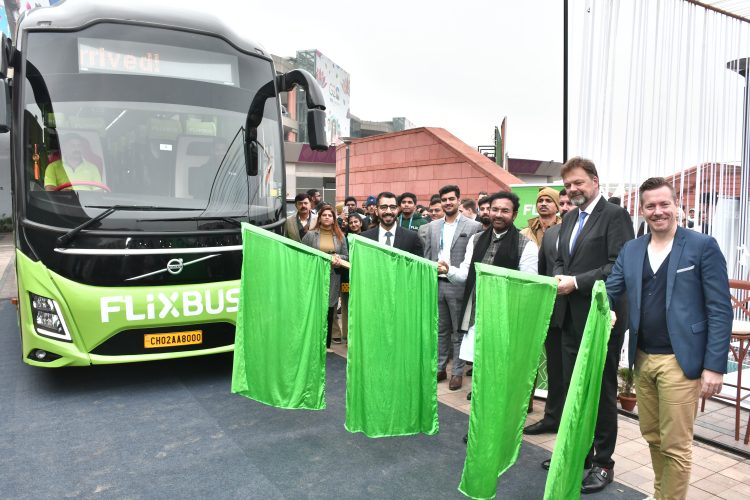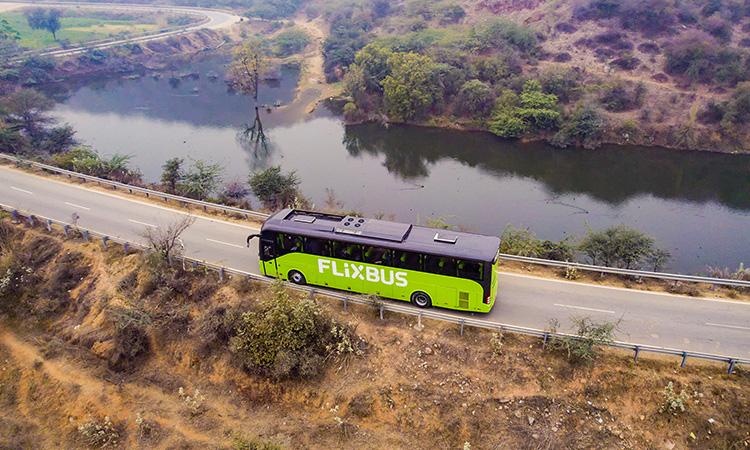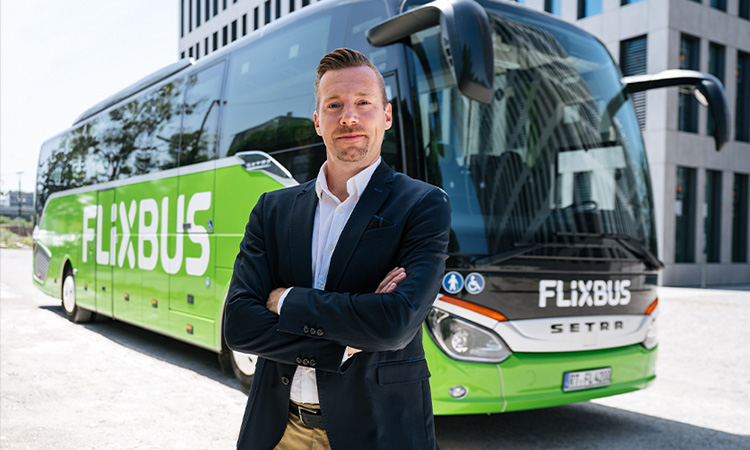FlixBus in India: Redefining travel convenience and comfort
- Like
- Digg
- Del
- Tumblr
- VKontakte
- Buffer
- Love This
- Odnoklassniki
- Meneame
- Blogger
- Amazon
- Yahoo Mail
- Gmail
- AOL
- Newsvine
- HackerNews
- Evernote
- MySpace
- Mail.ru
- Viadeo
- Line
- Comments
- Yummly
- SMS
- Viber
- Telegram
- Subscribe
- Skype
- Facebook Messenger
- Kakao
- LiveJournal
- Yammer
- Edgar
- Fintel
- Mix
- Instapaper
- Copy Link
Posted: 11 April 2024 | Surya Khurana - FlixBus India | No comments yet
Surya Khurana, Managing Director of FlixBus India, discusses the company’s vision for the Indian market, emphasising a commitment to providing affordable, environmentally friendly travel options for all.


Credit: FlixBus India
FlixBus had officially commenced its operations in India in February 2024. This marked a significant move for our company, as we introduced convenient and competitively priced intercity passenger transportation in the second-largest bus market globally. India is the 43rd country where FlixBus has launched its operations, partnering with local bus operators to provide a revolutionary travel experience. The network currently spans across Delhi, Himachal Pradesh, Jammu & Kashmir, Punjab, Rajasthan and Uttar Pradesh, covering 46 destination cities. In India, the company has currently based its hub at Delhi’s Kashmiri Gate bus depot, which also has a Flix lounge to assist travellers.
Growing consumer demand for quality bus services, coupled with improving road infrastructure and increasing online booking trends, offers significant growth opportunities”
The Indian market presents unique challenges, such as operational externalities and congestion issues. However, the growing consumer demand for quality bus services, coupled with improving road infrastructure and increasing online booking trends, offers significant growth opportunities. Our aim is to enhance customer experience through real-time updates and a higher service level agreement, addressing the sector’s current service gaps. For example, we currently offer charging points, gender seating (this means that seats next to women will be automatically reserved for other women), a 24×7 incident response team, a traffic control ward and two-point seat belts for all seats.
Furthermore, we are also assessing the launch of Wi-Fi services on-board, although data costs in India are minimal. We have stringent internal standards, including those relating to vehicle specifications, passenger amenities and safety features. Before being deployed, every bus in our network undergoes a thorough check to meet these FlixBus standards, ensuring a consistent and high-quality travel experience across our fleet. Therefore, we are able to bring a premium, airline-like experience to the bus sector in India, which has evaded the customer thus far.


Credit: FlixBus
Bus transport dominates travel in India, with close to 52% of total travel volume (passenger kms/ per annum) being taken care of by buses. In major parts of the country, bus is the only public transport available. Even where railways are present, they are booked out months in advance – leaving bus as the short-notice travel option. India has only 149 airports for a population of 1.4 billion. Thus, the impact of introducing a high-quality bus service in the country will have many benefits. Besides, it is also the right time for a tech-travel platform like FlixBus to enter the market.
Like in other countries, product accessibility has improved significantly in India through the spread of mobile phones; the number of smartphone users in India is currently at 659 million and it is projected that India will have 1 billion smartphone users by 2026. Most Indians access the internet via a mobile, with 4G data consumption at 19.5GB/user/month. Infrastructure investments have surged and is likely to continue at a relatively high level as the current federal government prepares for another term.
In this context, Flix is planning to invest substantially in the Indian market and build the most competitive bus network in the region, contributing to the economic growth of the entire country. By entering the Indian market, Flix aims to create a significant number of jobs and contribute to the economic growth of the entire country, with the company’s business model being a main catalyst for this goal.
Identifying the right partners
Through our innovative, technology-driven business approach, we are now working to deliver on our vision to provide affordable and environmentally friendly travel for everyone in India”
Our business model is based upon close co-operation with local operators and our global network, so the local economy benefits not only from the development of local companies and employment creation, but also from increased tourism and tax income. We have a very professional relationship with our bus partners and offer a sustainable partnership. We are a reliable and trustworthy partner for all of our bus partners, who are collectively more than 1,000 companies across Europe, North and South America and Türkiye. Our co-operation model involves sharing revenue and risk, with the primary risk borne by FlixBus, offering bus partners a great opportunity to expand their business with us. Our business philosophy is helping us to find the right partners in India and, so far, we have been able to on-board a great set of operators who are known for their excellence and probity.


Credit: FlixBus
We are also privileged to be receiving lots of encouragement from the Government of India and policymakers in the states where we are currently operating, as well as those we plan to expand to. As a foreign investor in India, we receive constant support and guidance from Invest India, India’s investment promotion agency under the Ministry of Commerce. In fact, it was Invest India who invited us to announce our arrival in India at the Bharat Mobility Global Expo 2024. FlixBus teams were extended full support from registering as an exhibitor at the Expo to conducting various activities such as engaging with consumers and ecosystem players. Shri G Kishan Reddy, Union Minister of Tourism, Culture and Development of the North-East Region, Government of India attended the event as Chief Guest and flagged off the first FlixBus from the iconic location of Bharat Mandapam, Pragati Maidan. Dr. Philip Ackerman, German Ambassador to India and Bhutan was a special guest at the event. As a result, our launch event gained coverage from all major news outlets in India and many from around the world.
Through our innovative, technology-driven business approach, we are now working to deliver on our vision to provide affordable and environmentally friendly travel for everyone in India. We will continue to leverage technology and data for network optimisation and operations, as well as marketing and sales. We have used the same toolkit to successfully build up the largest intercity bus network across Europe, tremendously growing the industry and the number of yearly passengers. Our ambition is to do the same in India.


Related topics
Accessibility, Fleet Management & Maintenance, Mobility Services, Passenger Experience, Public Transport
Related modes
Bus & Coach
Related cities
Delhi, Himachal Pradesh, Jammu, Kashmir, Punjab, Rajasthan, Uttar Pradesh
Related countries
India
Related organisations
Flix, FlixBus, FlixBus India
Related people
Philip Ackerman, Shri G Kishan Reddy, Surya Khurana








